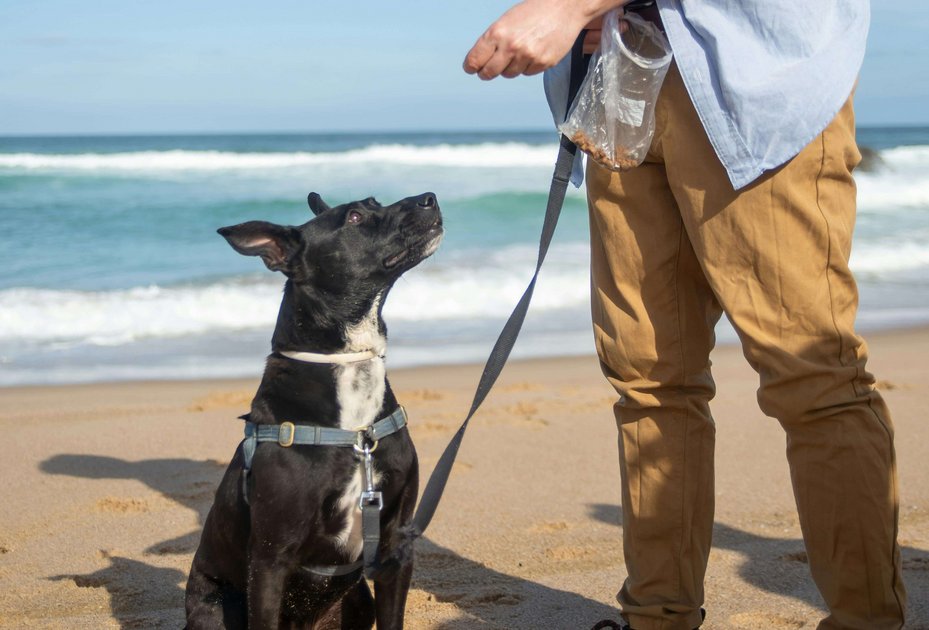- Home /
- University /
- Infoservice /
- Press Releases /
- Beyond nice and nasty: dogs treat us all the same
Research
Beyond nice and nasty: dogs treat us all the same
A recently published study by the Konrad Lorenz Institute of Ethology (KLIVV) at the University of Veterinary Medicine, Vienna, investigated whether dogs judge human social behavior. Using a controlled feeding experiment, the researchers examined whether dogs react differently to “nice” or “nasty” behavior displayed by humans towards themselves or another dog, and whether the age of the dogs plays a role. According to the researchers, there is no evidence that dogs make such distinctions.

Some animal species, such as chimpanzees, can form impressions of humans through direct interactions or by observing how humans interact with others – a phenomenon known as “Eavesdropping.” Given their close cooperative relationship with humans, dogs (Canis lupus familiaris) have been the focus of much research investigating whether they can socially evaluate people. However, the findings so far have been inconsistent, with studies pointing in different directions.
Do dogs form a reputation of humans?
To explore whether this potential ability develops over a dog’s lifetime (ontogeny), the researchers investigated whether dogs of different ages – young, adult, and senior – can judge people, since older dogs have more life experience with humans. The dogs were tested after either observing humans interact with a conspecific (another dog) or engaging in direct interactions with the humans in a food-giving situation.
Forty domestic dogs took part in the experiment. In the eavesdropping phase, the dogs watched two humans interacting with a dog demonstrator – one human was nice and fed the dog, while the other was nasty and withheld the food. In the direct experience phase, the dogs interacted with both humans themselves.
Hoi-Lam Jim from KLIVV, first author of the study, explains how the experiment proceeded: “We analyzed the dogs' first choice and the time they spent showing affiliative behaviors (e.g., proximity, jumping up) towards each partner. The results showed that dogs of all ages did not significantly favor the nice partner over the nasty partner. Their behavior was also not above chance level, whether after observing the interactions or experiencing it directly.”
No evidence for reputation formation in domestic dogs, regardless of age
According to the researchers, the study does not support the idea that domestic dogs are capable of forming reputations, regardless of their age. “These findings add to the growing literature suggesting that social evaluation is a challenge for animals,” emphasizes senior author Sarah Marshall-Pescini from KLIVV. “To better understand how and whether ontogeny influences dogs’ sociocognitive abilities, future research should systematically compare dogs from different populations (e.g., free-ranging dogs), age groups, and life experiences (e.g., dogs with specialized training such as police or service dogs). Furthermore, our study underscores the importance of refining methodological approaches, as there may be limitations in current experimental designs that prevent dogs from demonstrating this ability,” Marshall-Pescini adds.
The article „Do dogs form reputations of humans? No effect of age after indirect and direct experience in a food-giving situation“ by Hoi-Lam Jim, Kadisha Belfiore, Eva B. Martinelli, Mayte Martínez, Friederike Range and Sarah Marshall-Pescini was published in Animal Cognition.
Scientific article